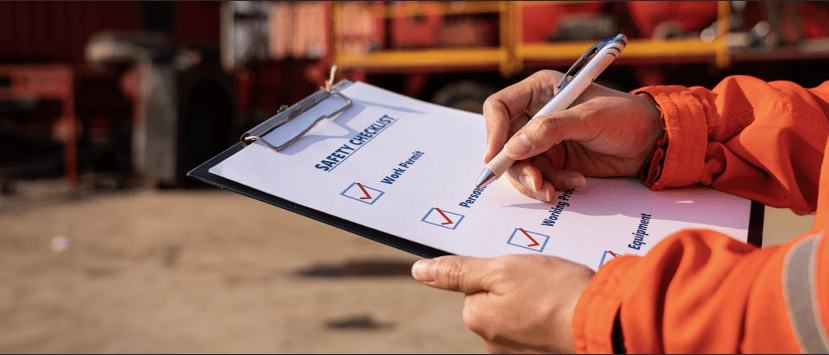
May 24 – Health & Safety Newsletter
Welcome to the May 2024 edition of our Compass Health & Safety Consultancy newsletter.
This month, we focus on several critical areas that are essential to maintaining robust health and safety standards across your operations. Our topics include first aid and first aid training, the importance of permits to work, and the implications of the Dangerous Substances and Explosive Atmospheres Regulations (DSEAR). We also provide an overview of recent legal cases to highlight key lessons and reinforce the importance of compliance.
At Compass HSC, our mission is simple, we are here to support your business in achieving excellence in health and safety management. By addressing these vital subjects, we hope to enhance your understanding, improve your practices, and ensure your workplace remains safe and compliant.
In this edition
Section 1 – First Aid
Section 2 – Permits to Work
Section 3 – DSEAR
Section 4 – Consultation
Section 5 – In Court
Tower Insurance
Remember when your current Employer or Public liability insurance is due for renewal give Tower Insurance a call, and mention Compass HSC and they will offer a discount on the renewal premium.
Call 07741321203 and speak with Sean Killingbeck.
www.compasshsc.co.uk | 01253 735 755

Section 1 – First Aid
The first aid at work regulations 1981 make a number of pretty basic legal obligations.
The first is to carry out an assessment of requirements- simply put- a written statement on the nature of the business and the typical types of workplace injuries that could be reasonably expected to occur.
If your business operates in the Construction sector then its stands to reason that physical injuries are likely to occur far more commonly than if you are an office-based business.
The first aid at work regulations 1981 make a number of pretty basic legal obligations.
The first is to carry out an assessment of requirements- simply put- a written statement on the nature of the business and the typical types of workplace injuries that could be reasonably expected to occur.
Other considerations would be:
- The nature and type of injury
- Proximity to a local hospital, or the time it may take for an ambulance under blue and twos to get to your workplace
- The chemicals or processes you may work with etc.
Having established these factors, it then falls to the employer to:
The first is to carry out an assessment of requirements- simply put- a written statement on the nature of the business and the typical types of workplace injuries that could be reasonably expected to occur.
- Provide suitable and sufficient first aid trained employees, based on factors such as shift work, number of Employees and the seize of your workplace
- Provide first aid facilities, equipment, and personnel, may range from a first aid box in the kitchen to a fully fitted out first aid room, and in extreme circumstances the provision of oxygen
There are many types of first aid courses – some are specific to certain industries such
as electrical as in training specifically in reviving a person who has received an electric
shock.
In more recent times we now have stress first aiders who specialise in in providing
counselling to workers on a broad range of mental health related topics, to E-learning
over a couple of hours to a 3-day course for high risk working environments.

www.compasshsc.co.uk | 01253 735 755

Section 2 – Permits To Work
Permits to work are elements of a safe system of work used for higher risk work activities such as:
- Work in confined spaces
- Hot work
- Control of services isolations
The principal aspect of any permit to work is a written contract obligation and duty between the permit to work issuer, and the permit to work acceptors.
The issuer is stating that the work may proceed on the basis that it has been made safe for the person( s) carrying out the work and with any identified residual hazards recorded.
The permit to work acceptor in accepting the conditions of the permit confirming that they are:
- Informed of the status of the system to be worked on
- Understand and will comply with any direction stated under the permit to work
- Will sign off the permit at the end of the day, as either work complete, or work in complete
Permit issuing can only be done by supervisors who have had the necessary training in the operation and use of a permit to
work system and are fully aware of the legal responsibility and liability placed upon them if something goes wrong.
We offer permit to work training and are permit to work issuers to many of our higher risk sector clients.
www.compasshsc.co.uk | 01253 735 755

Section 3 – Dangerous Substances and Explosive Atmospheres’ Regulations’ (DSEAR)
If you use any substances that are classed as flammable, or highly flammable such as solvents, petrol, diesel, chemicals, or natural gas, or work in an environment that generates suspended airborne dust such a wood dust, metal dust, chemical dusts then it will be necessary to carry out a dangerous substances and explosive atmospheres risk assessment.
The purpose of the risk assessment is primarily to determine if “special precautions” relating to the selection, and certification of electrical equipment to be used in hazardous areas is necessary as the electrical equipment, motors, light fittings switches etc are a potential source of heat and ignition of flammable vapours or combustible suspended in air dusts.

Section 4 – Consultation with Employees
Meeting your workers/ employees on a regular basis to discuss health and safety is a legal requirement, and is vital for exchanging views and opinions, and engaging with your workers, as health and safety is a 2-way street with employers and employees collaborating to achieve the best health and safety compliances outcomes.
It is vital that you find time to do this
Note: A toolbox talk is not deemed to be consultation, a toolbox talk is a short refresher training session on a specific health and safety related topic such as manual handling, working at height etc.
www.compasshsc.co.uk | 01253 735 755

Section 5 – In Court
We bring you 2 recent criminal cases heard in the crown court, concerning a workplace related injury- we provide these articles as a constant reminder of the daily legal responsibility placed on employers to ensure the health, safety, and wellbeing of their employees, and by way of example the consequences of failing in this duty.
Double glazing company boss avoids jail after worker dies
The director of a Croydon-based double-glazing company has avoided an immediate spell behind bars following the death a man described as “an anchor” by his devastated wife.
Ayman Noor was given a suspended prison sentence and his company – My Best Group Limited – was fined, following the death of 40-year-old Kashif Rehman on 12 November 2021.
Mr Rehman suffered a cardiac arrest when a number of toughened glass panels fell on him as he was trying to retrieve one from a stack leaning against a wall.
An investigation by the Health and Safety Executive (HSE) found that Mr Rehmanʼs death could have been prevented had the glass panes, weighing up to 10kg each, been restrained or stored in a suitable racking system to hold them in place.
My Best Group Limited, had failed to assess the risks associated with storing and handling the panes of glass, implement a safe system of work and provide adequate training and supervision.
My Best Group Limited, which is now in liquidation pleaded guilty to breaching Sections 2(1) and 3(1) of the Health and Safety at Work etc. Act 1974. The company would have been fined £120,000 but due to its liquidation status this was reduced to a nominal fine of £2,200.
Director Ayman Noor was given 20 weeks and 14 weeks custodial sentences that will run concurrently, but they were suspended for 12 months. He will also pay costs of £9,294 for breaching section 37 of the same Act.
Double glazing company boss avoids jail after worker dies
The director of a Croydon-based double-glazing company has avoided an immediate spell behind bars following the death a man described as “an anchor” by his devastated wife.
Ayman Noor was given a suspended prison sentence and his company – My Best Group Limited – was fined, following the death of 40-year-old Kashif Rehman on 12 November 2021.
Mr Rehman suffered a cardiac arrest when a number of toughened glass panels fell on him as he was trying to retrieve one from a stack leaning against a wall.
An investigation by the Health and Safety Executive (HSE) found that Mr Rehmanʼs death could have been prevented had the glass panes, weighing up to 10kg each, been restrained or stored in a suitable racking system to hold them in place.
My Best Group Limited, had failed to assess the risks associated with storing and handling the panes of glass, implement a safe system of work and provide adequate training and supervision.
My Best Group Limited, which is now in liquidation pleaded guilty to breaching Sections 2(1) and 3(1) of the Health and Safety at Work etc. Act 1974. The company would have been fined £120,000 but due to its liquidation status this was reduced to a nominal fine of £2,200.
Director Ayman Noor was given 20 weeks and 14 weeks custodial sentences that will run concurrently, but they were suspended for 12 months. He will also pay costs of £9,294 for breaching section 37 of the same Act.
www.compasshsc.co.uk | 01253 735 755


